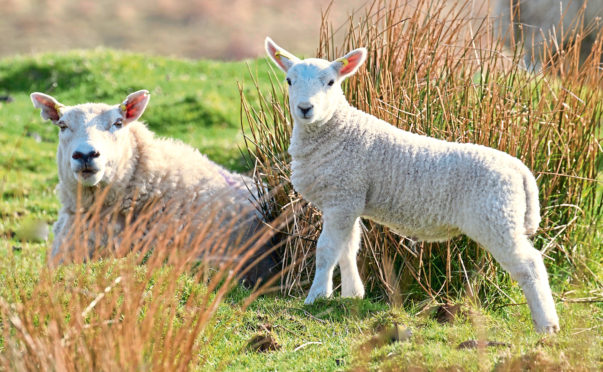Scottish farm leaders yesterday launched an urgent call for an exemption from EU rules to try to prevent a 20% drop in Less Favoured Areas Support Scheme (LFASS) payments next year.
NFU Scotland (NFUS) said figures revealed in last week’s Scottish Budget confirmed a 20% cut in LFASS payments in 2019.
The union branded the cuts “unacceptable” and said farmers and crofters also faced a possible 80% cut in payments in 2020.
This reduction, also known as ‘parachute’ payment cuts, is a direct result of existing EU rules which govern LFASS.
“While confirmation of the cut for 2019 is no surprise, it is nevertheless a massive body blow for LFA producers having just come through an unprecedented period of physical and financial challenges that resulted in some throwing in the towel and left many on the brink and short of confidence,” said NFUS president Andrew McCornick.
“The net result of cuts to LFASS, unless reversed, will be a further demise of our more extensive livestock sectors; the red meat sector in general; the Scotch brand it underpins and the risk of yet more land abandonment in some quarters.”
NFUS director of policy, Jonnie Hall, said the union was gathering evidence to help the Scottish Government put together a case to apply for an exemption from the rules, and prevent the payment cuts, to the European Commission.
Speaking at the union’s Christmas press briefing near Edinburgh yesterday, Mr Hall said: “LFASS support has always been there to underpin active farmers and crofters, and for many businesses the LFASS support payment has been the difference between make or break.
“We are working very closely with the Scottish Government in trying to put together a case to take to the European Commission for a derogation from these regulatory requirements.
“The case is that the primary objective of LFASS is to prevent land abandonment.
“Given the last 18 months of extremes, both in terms of financial pressures and physical pressures, and the dearth of confidence, we think there is a very strong case that if the European Commission is as keen as it states it is to ensure there is continued agricultural activity in certain locations, then it needs to reverse these requirements.”
He said the union has a meeting with government officials later this week to discuss the matter.
